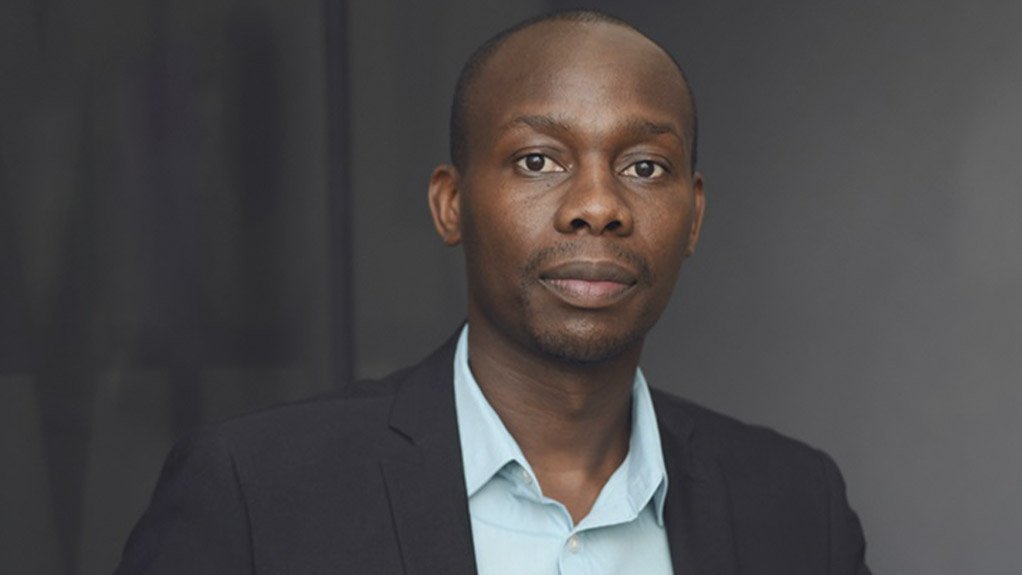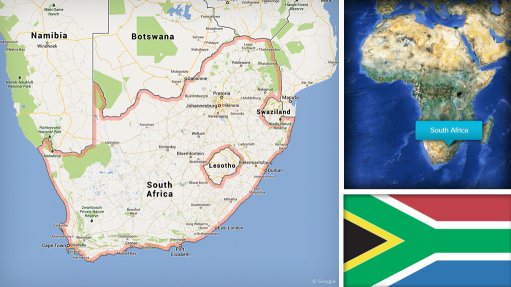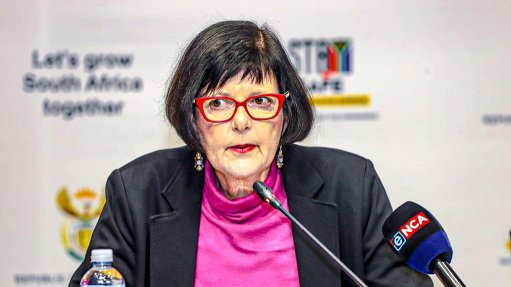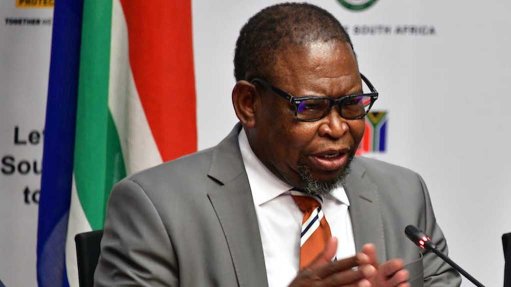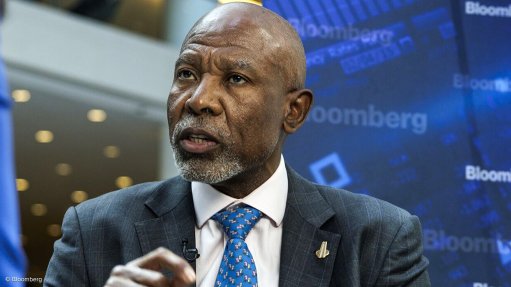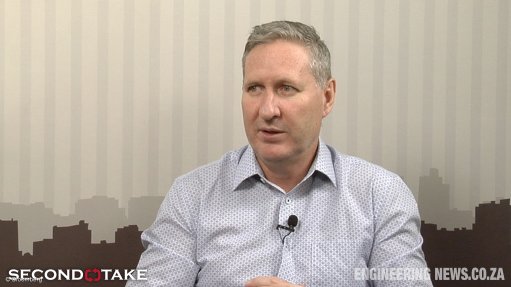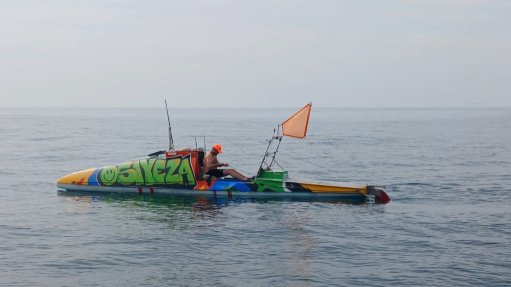Bridging the digital skills gap: Africa’s path to harnessing AI's potential
This article has been supplied and will be available for a limited time only on this website.
By; Ntsako Baloyi - senior manager within the Technology business at Accenture, Africa
AI could contribute up to $30 billion to Sub-Saharan Africa's economy by 2030, according to Google’s Digital Opportunity of Africa report. This is a remarkable prospect for a continent still navigating its digital transformation – a crucial shift toward achieving rapid economic growth. However, the growing gap in our digital skills is hindering our progress, particularly as global AI advancements accelerate. As of 2023, the Eastern and Southern Africa region lags globally, with only 64% of the population having access to high-speed internet and 24% actively using it. The case for urgency is clear. To stay in the game, we need to develop a digitally savvy, highly skilled workforce to harness the potential of rapidly evolving technologies like AI. Developing and honing these skills requires a multifaceted approach from transforming education to creating supportive environments to retain skilled professionals.
The World Bank estimates that by 2030, Sub-Saharan Africa will require 230 million digital jobs, most of which will demand a workforce equipped with intermediate to advanced digital skills. The pace of progress in building these skills varies, with some regions showing promising developments. South Africa, along with Kenya, Egypt, and Nigeria, forms part of an “innovation quadrangle” that hosts over 80 active tech hubs, mainly in cities like Cape Town, Johannesburg, and Durban. These hubs have been instrumental in nurturing tech talent and providing much-needed infrastructure to support digital education. Examples like these show that the continent is rich with potential. We just need better strategies to harness it.
Addressing the digital skills gap in Africa requires a coordinated effort from multiple stakeholders, including governments, private sector players, educational institutions, and NGOs. First and foremost, digital skills education must be introduced early. Curriculums must make digital literacy a core component of the education system. This means providing schools with the necessary infrastructure – computers, internet access, and trained educators – to teach students how to use digital tools effectively.
Once we’ve laid this foundation, tertiary institutions need to transform to align with global standards.
Specialised courses focusing on the tech sectors driving Africa’s future including programming and software development, data science, and cybersecurity form part of a tech ecosystem required to build future-ready organisations. This ethos should also extend beyond tertiary institutions to NPOs like GirlCode and youth@WORK which are excellent examples of initiatives that provide training and employment opportunities for youth in underserved areas outside of institutional settings. The public and private sectors must forge strategic partnerships to fund infrastructure, scholarships, research and tech hubs. These investments nurture the next generation of tech professionals, secure organisational resilience, and help Africa realise its AI potential.
Building digital skills from an early age and continuing to provide opportunities for these skills to flourish is just the beginning. Africa is already producing highly skilled professionals with the knowledge to accelerate AI development in line with global standards – we’re just struggling to retain them. Organisations must take a people-centric approach to their digital transformation efforts, providing continuous in-house training for workers, offering opportunities to expand skills, and providing incentives to encourage a culture of lifelong learning.
According to our research, adopting a people-centric approach is not only essential for retaining talent but ultimately sets organisations apart from their competitors with the potential to create an additional $10.3 trillion in economic value by 2038.
AI presents an opportunity for African countries to innovate and compete at a global scale. One could argue that it has the potential to stimulate economic growth in the continent. AI skills among young people can also be a catalyst to unlock this and drive innovation, creating a workforce that can serve both Africa and the rest of world. To fully capitalise on its benefits, the continent must nurture its human capital. Beyond economic growth, AI can bring substantial organisational benefits, from automating processes to enhancing decision-making capabilities. However, these opportunities are only accessible to a workforce that is adequately trained to use these technologies.
To ensure that Africa can leverage AI and other emerging technologies, collaboration between the private sector, governments, and educational institutions, and enlisting the guidance of experts to develop people-centric implementation strategies is crucial. By pooling resources and expertise, these stakeholders can create scalable initiatives to address the digital skills gap and ensure that Africa is well-positioned to take full advantage of the opportunities provided by AI and position itself as a global leader in the digital age.
Comments
Press Office
Announcements
What's On
Subscribe to improve your user experience...
Option 1 (equivalent of R125 a month):
Receive a weekly copy of Creamer Media's Engineering News & Mining Weekly magazine
(print copy for those in South Africa and e-magazine for those outside of South Africa)
Receive daily email newsletters
Access to full search results
Access archive of magazine back copies
Access to Projects in Progress
Access to ONE Research Report of your choice in PDF format
Option 2 (equivalent of R375 a month):
All benefits from Option 1
PLUS
Access to Creamer Media's Research Channel Africa for ALL Research Reports, in PDF format, on various industrial and mining sectors
including Electricity; Water; Energy Transition; Hydrogen; Roads, Rail and Ports; Coal; Gold; Platinum; Battery Metals; etc.
Already a subscriber?
Forgotten your password?
Receive weekly copy of Creamer Media's Engineering News & Mining Weekly magazine (print copy for those in South Africa and e-magazine for those outside of South Africa)
➕
Recieve daily email newsletters
➕
Access to full search results
➕
Access archive of magazine back copies
➕
Access to Projects in Progress
➕
Access to ONE Research Report of your choice in PDF format
RESEARCH CHANNEL AFRICA
R4500 (equivalent of R375 a month)
SUBSCRIBEAll benefits from Option 1
➕
Access to Creamer Media's Research Channel Africa for ALL Research Reports on various industrial and mining sectors, in PDF format, including on:
Electricity
➕
Water
➕
Energy Transition
➕
Hydrogen
➕
Roads, Rail and Ports
➕
Coal
➕
Gold
➕
Platinum
➕
Battery Metals
➕
etc.
Receive all benefits from Option 1 or Option 2 delivered to numerous people at your company
➕
Multiple User names and Passwords for simultaneous log-ins
➕
Intranet integration access to all in your organisation



